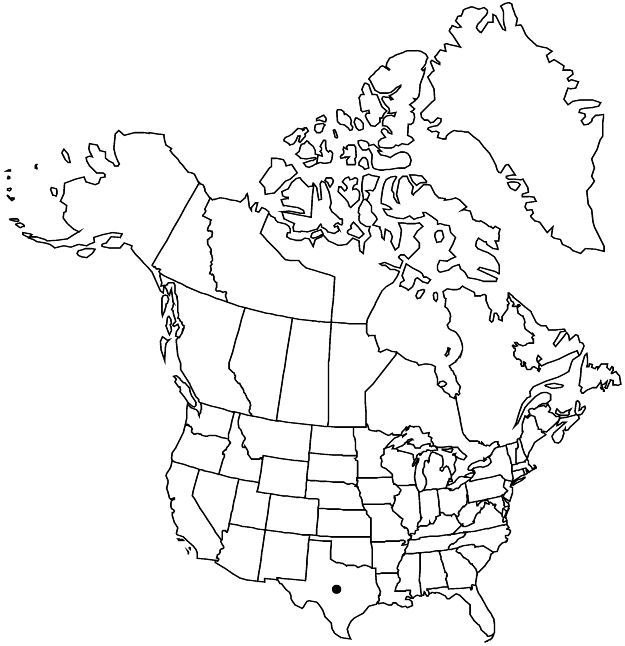Sageretia thea
J. Arnold Arbor. 49. 378. 1968.
Shrubs or vines, loosely to compactly branched. Branches usually erect, sometimes sprawling or clambering, closely and thinly brown-tomentose. Leaves persistent, opposite to subopposite proximally, becoming alternate distally; blade oblong to elliptic, ovate, or elliptic-ovate [suborbiculate], 1–4.5 × 0.5–2.5 cm, base rounded to subcordate, margins serrulate, apex acute to obtuse or rounded, surfaces glabrous [densely white-tomentose abaxially]; veins prominently raised adaxially, reticulate. Inflorescences terminal and axillary, primary axis 2–5 cm, lateral branches 4–8. Drupes black to purple-black or dark brown, ovoid or obovoid to subglobose, 4–5 mm; stones 3.
Phenology: Flowering Aug–Sep.
Habitat: Roadsides, bottomland hardwood-pine forests.
Elevation: 10 m.
Distribution

Introduced; Tex., Asia (Afghanistan, China, India, Iran, Japan, Korea, Nepal, Pakistan, Thailand, Vietnam).
Discussion
Two non-typical varieties are recognized within Sageretia thea (Chen Y. L. and C. Schirarend 2007), each differing from var. thea at least in a more prominent leaf vestiture: var. cordiformis Y. L. Chen & P. K. Chou and var. tomentosa (C. K. Schneider) Y. L. Chen & P. K. Chou (Chen and Schirarend; M. Qaiser and S. Nazimuddin 1981). Sageretia brandrethiana Aitchison also has sometimes been treated at varietal rank within S. thea. Qaiser and Nazimuddin noted that S. thea is a highly polymorphic species, variable particularly in the degree of stems and leaf vestiture and in leaf shape and margin (crenulate, minutely serrate, or entire).
The native range of Sageretia thea sometimes is said to extend to northeastern Africa (M. Qaiser and S. Nazimuddin 1981), but this appears not to be clearly established. The type of the species is from China (M. C. Johnston 1968).
Sageretia thea was noted by L. E. Brown and K. N. Gandhi (1989) as occurring beside highways near Alvin, Brazoria County, where it apparently has been planted. Evidence that the species is naturalized, rather than persistent from plantings, is in a collection made in 2007 from within woods near the locality where the plants were earlier observed as common roadside shrubs.
The illegitimate, superfluous names Rhamnus theezans Linnaeus and Sageretia theezans (Linnaeus) Brongniart pertain here.
Selected References
None.